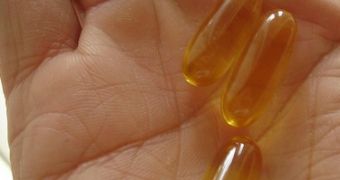35,016 women were followed-up for six years and 880 cases of breast cancer were identified. Researchers at the Fred Hutchinson Cancer Research Center in Seattle, led by Emily White, PhD, a member of the public health sciences division, published a report in Cancer Epidemiology, Biomarkers & Prevention that concluded that fish oil does help prevent cancer.
These menopausal women, who did not have a history of breast cancer, were asked to complete a questionnaire about their use of supplements that were not either vitamins nor minerals. Six years later, regular use of fish oil supplements was linked with a 32 percent reduction in risk of breast cancer. This phenomenon appeared to be restrictive to invasive ductal breast cancer, the most common type of the illness.
Fish oil contains high levels of omega-3 fatty acids, EPA (Eicosapentaenoic acid)and DHA (Docosahexaenoic acid). Omega-3 fatty acids are considered to be essential fatty acids for human health but the body doesn't produce them. People need to draw this fatty acids from fish like salmon, tuna, and halibut, other seafood including algae and krill, some plants, and nut oils. Also known as polyunsaturated fatty acids (PUFAs), omega-3 fatty acids play a crucial role in brain function as well as normal growth and development.
This is the first research to demonstrate a link between the use of fish oil and a reduction in breast cancer. “It may be that the amount of omega-3 fatty acids in fish oil supplements are higher than most people would typically get from their diet,” White said. However, “without confirming studies specifically addressing this,” she said, “we should not draw any conclusions about a causal relationship”.
Another scientist, Edward Giovannucci, agreed with White: “It is very rare that a single study should be used to make a broad recommendation,” he said. “Over a period of time, as the studies confirm each other, we can start to make recommendations.”. Mr Edward Giovannucci, MD, ScD is a professor of nutrition and epidemiology at the Harvard School of Public Health and an editorial board member of Cancer Epidemiology, Biomarkers & Prevention.
The next research plans to study 20,000 US men aged 60 years and older and women aged 65 years and older, who don't have a history of cancer, heart disease or stroke, and have never taken supplements.

 14 DAY TRIAL //
14 DAY TRIAL //